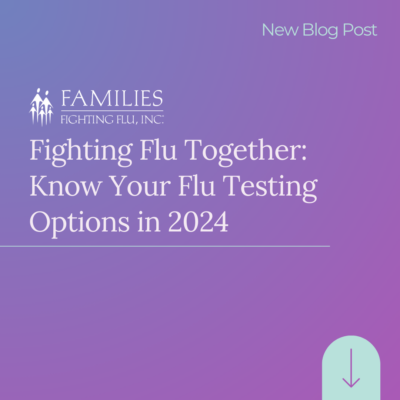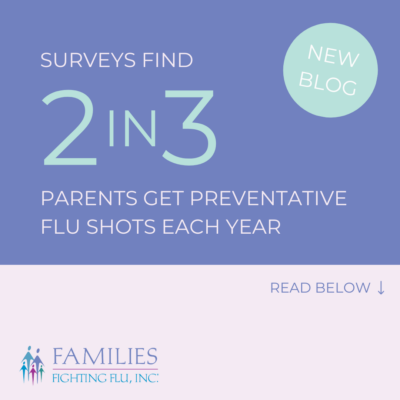
- Science & Research
Fighting Flu Together: Know Your Flu Testing Options in 2024

The 2023-2024 influenza (flu) season has trended in a traditional pattern across the country this year with 25 million illnesses and 91 pediatric deaths so far. The flu is serious and impacts everyone in our communities. It is still one of the deadliest vaccine-preventable diseases in the U.S. While the flu is widespread, it can also be treated. Before a patient can receive treatment for the flu, it’s important to be tested to ensure you receive proper care. Knowing your testing options can make all the difference for not just you but for your family, friends, co-workers, and neighbors.
Why Testing for the Flu is Essential
A traditional flu season consists of the circulation of multiple respiratory illnesses with overlapping symptoms, including COVID-19 and respiratory syncytial virus (RSV) in addition to influenza. With different viruses circulating and some symptoms overlapping, it can be easy to confuse them. That’s where testing comes in. It’s fairly simple and quick to test for flu and other viruses and should be done at the first sign of symptoms.
Symptoms of the flu include:
- Fever
- Headache
- Fatigue or Extreme Tiredness
- Muscle or Body Aches
- Dry Cough
- Sore Throat
- Runny or Stuffy Nose
- Vomiting and Diarrhea, (more common in children than adults)
With overlapping symptoms, many labs and doctor’s offices offer highly accurate tests that can identify more than one virus at a time with a single sample. Testing can be done by healthcare providers and even at some local pharmacies. An educated guess based on symptoms or experience has been shown to be less effective; another reason why testing is essential.
The Different Types of Tests
There are two main types of tests to diagnose these different respiratory infections: Polymerase Chain Reaction (PCR) and Rapid Antigen. While one swab can detect multiple viruses, it’s important to understand which test is right for you.
PCR tests detect genetic material, making them very accurate and reliable. They are typically administered at a doctor’s office and results can take minutes to hours. Rapid Antigen tests can be given at a doctor’s office or testing facility, in addition to purchasing online or at retail facilities for a self-testing option. Results are available in just 15 to 20 minutes.
So which one is the right choice? PCR is recommended for anyone needing definitive results – including high-risk people and their family members or close contacts. PCR tests can:
- Provide your doctor with more accurate test results.
- Help doctors confirm COVID-19, RSV and the flu for treatment when similar symptoms are present that make diagnosis difficult.
- Provide the best option for early detection when treatment is most effective.
Talk to your healthcare provider about which test may be the best option for you.
Diagnosis and Treatment
If you are symptomatic, don’t wait to get tested! When properly tested and diagnosed early, you can get early treatment, decreasing the duration of illness and risk for complications that are associated with influenza. Most flu and COVID-19 antivirals are most effective when prescribed within 48 hours and five days of symptom onset, respectively. Antiviral treatment is expected to lessen fever and symptoms and shorten the time you are sick. In addition, they potentially can reduce the risk of complications such as ear infections in children, respiratory complications requiring antibiotics, and hospitalization in adults. They can truly be a game-changer if taken early enough.
If you have been in close contact with someone with a higher risk of developing serious flu-related complications and receive a positive test result you must let them know as soon as possible so they can get tested promptly.
According to the CDC, influenza vaccination is safe and effective and is the single best way to help protect yourself and your family from the flu each year. Vaccines have been shown to reduce doctor visits by 40 to 60 percent. You can read more about flu vaccines and boosters here.
Protect yourself and those you care about with proper testing to keep you and your loved ones safe throughout the respiratory season.


